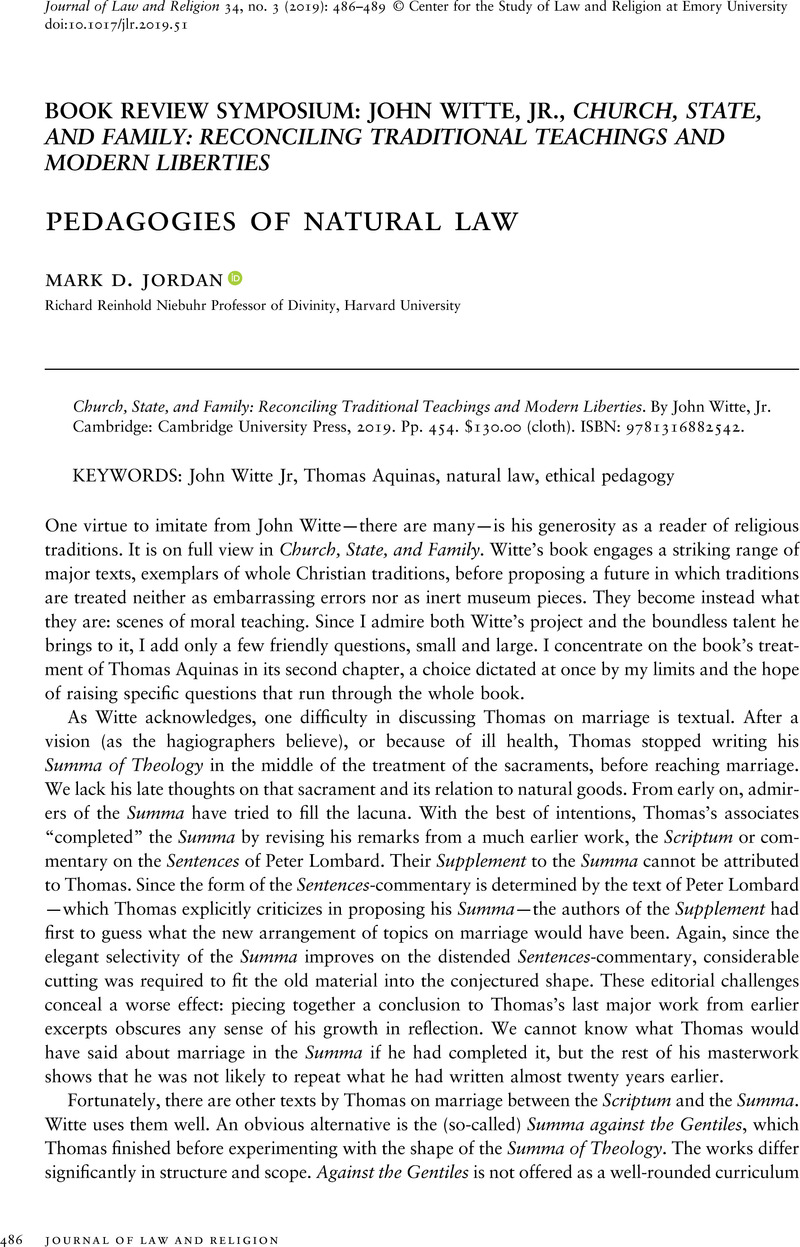No CrossRef data available.
Article contents
PEDAGOGIES OF NATURAL LAW - Church, State, and Family: Reconciling Traditional Teachings and Modern Liberties. By John Witte Jr. Cambridge: Cambridge University Press, 2019. Pp. 454. $130.00 (cloth). ISBN: 9781316882542.
Review products
Published online by Cambridge University Press: 24 February 2020
Abstract

- Type
- Book Review Symposium: John Witte, Jr., Church, State, and Family: Reconciling Traditional Teachings and Modern Liberties
- Information
- Copyright
- Copyright © Center for the Study of Law and Religion at Emory University 2020
References
1 Thomas's double treatment of marriage in Against the Gentiles converges with Witte's view of marriage as a “multidimensional institution” that can be pictured as a sphere or globe (for example, 186). Thomas views philosophy as the entire hierarchy of knowledge below the level of revelation. It is intrinsically interdisciplinary.
2 Thomas's phrase, in officium naturae, resists translation. Officium was a term in Roman ethics that educated Christian writers adapted quickly (most obviously in Ambrose's De officiis ministrorum, a response to Cicero's De officiis). Officium is sometimes translated as duty, but it is certainly not duty in a Kantian sense. It is more like a charge, role, or capacity with attendant obligations. The phrase officium naturae and its variants do occur in early writings, including the Institutes of Justinian (book 2, title 13, paragraph 5). Still, the phrase gains wide use in discussions of marriage only in the thirteenth century—in the writings of Albert the Great and his sometime student, Thomas Aquinas. Thomas inflects it further by writing most often in officium naturae. Marriage serves as an officium to or for nature.
3 Compare Witte: “Even the most robust natural law theorists have always understood that the natural configuration of the marital family standing alone is unstable” (197).
4 Of course, Thomas has already argued that the education required for human children differs in many ways from that needed by animals—precisely because they are rational animals or incarnate intelligences. Human child-rearing cannot be reduced to animal resemblances.


